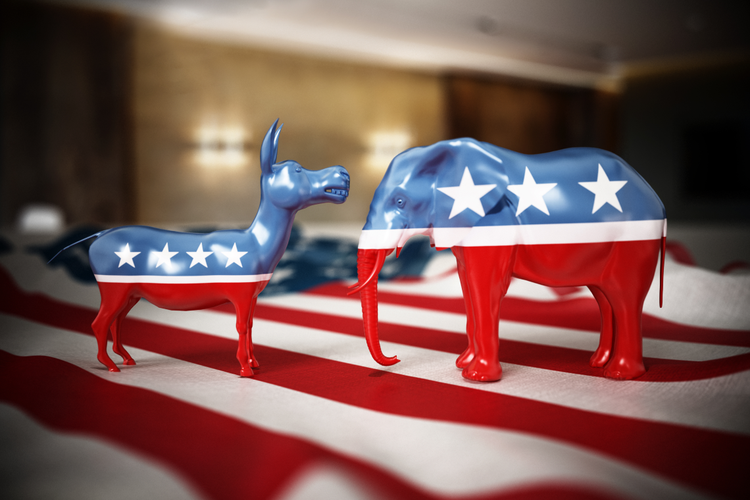How will the 2020 US election impact the world’s stock markets?
The 2020 US presidential election will have major implications on whether globalisation continues to reverse and the US persists in renegotiating international accords. COVID-19 has further complicated the outlook for the upcoming 3 November election.
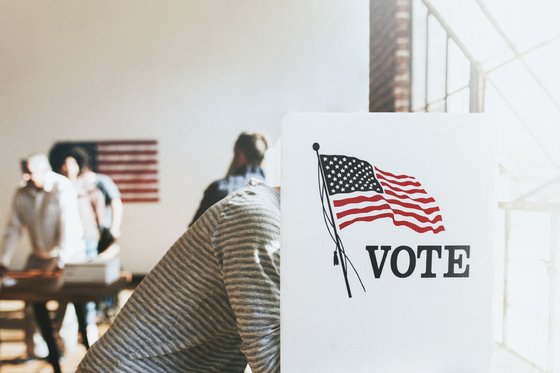
19th August 2020
Historically, presidential elections have been one of the most reliable events in providing major market moves. The standard expectation is for the incumbent party to have the economy clicking on all cylinders before Americans head for the polls. The study of presidential election cycles for much of the last century showed roughly an 11% Dow Jones Industrial Average gain with the pre-election year, followed by a 7% election year gain and 4.7% post-election gain.
The S&P 500 has similar results over the past 16 elections, with the year following the election seeing a 6.5% gain, steady improvement in year two at 7.0%, a strong third year at 16.4%, and 6.6% advance in the fourth year.
Despite all the history with the presidency, the 2020 Presidential election will likely take a backseat to the coronavirus pandemic. Wall Street cares greatly about the election, but the COVID-19 impact, labour market weakness, and difficulties with the reopening of the economy will likely force the Fed’s hand in keeping an intense level of accommodation.
Forget presidential election cycle this time
In the US, the pandemic has claimed more than 170,000 lives so far this year, sending the economy into recession and crippling large parts of the labour market. The US has struggled to control the spread of the virus, which is widely expected to return in the fall, likely impacting demand for mail-in voting and possibly meaning we won’t get results on election night.
Despite having been impeached late last year, at one point it seemed a foregone conclusion that America would re-elect Donald Trump thanks to his strong economy and stock market. This momentum further strengthened as the odds increased that the Republicans would take the House of Representatives.
With Biden bound for the White House, how will you trade?
Already have a live trading account? It is easy to fund your account using one of the following payment methods






US election impact on stock market
2020 would provide the wildest swings both in the stock markets and presidential elections. In February, the first nominating contests for the Democrats showed that after a plethora of individuals entered the race, nobody was standing out as a game changer. Eventually, the blue party decided former-VP Joe Biden stood a better chance than either progressive option, Bernie Sanders or Elizabeth Warren.
And then, President Trump’s grip on the election started to unravel after the COVID-19 hit the US. The coronavirus spread across the country, forcing the economy to post its worst economic drop on record. And with this, Trump went from a firm favourite to the underdog as the virus death toll surged far beyond some of the early worst-case-scenario predictions.
And now, with less than 75 days until America goes to the polls, this election cycle will be a first as social distancing rules move many of the upcoming key events online. Despite this, President Trump is not your typical politician and we know he will fight hard to convince the American people he will do whatever he can for the economy and to be elected back to the white house for a second term.
How will COVID-19 affect the stock markets around the election?
Given COVID-19 seems to have an overarching influence over everything right now, the pandemic may also impact market reaction to the election. That said, while the current situation is undoubtedly unique and tragic, it’s not the first time an election has been fought at a time of upheaval and suffering.
Regardless of what happens in November, investors will need to continue to monitor the war against COVID-19. The labour market will likely see high single-digit unemployment by the end of the year, and that will only improve if Americans are confident they will eventually return to pre-pandemic behaviour. That’s why incremental updates on treatments and vaccines will be critical to the outlook. With more than 100 vaccines being tested, it’s critical that one of the early bets that have already been cleared for mass production is significantly effective.
Another key focal point for the outlook is how much more stimulus will be pumped into the economy. Whoever is in the oval office will determine the fiscal part, with the Fed likely maintaining an aggressive stance to support the economy.
This election will affect every asset class as policies could change depending on how America fights the next wave of the coronavirus. The stimulus outlook and breakdown will depend on whether the winner has strong control of the House and Senate, and global trade relations could remain volatile or the winner may choose to adopt a more a conciliatory tone.
What a Trump re-election could mean for global stock markets
This election will have significant implications on how the US pursues trade relations. A Biden presidency could see investors price in a fundamental improvement with ties overnight, possibly putting an end to immediate tariff threats. However, it could also mean higher corporate taxes and a harsher regulatory environment, creating a downside for the economy.
In addition, Biden would probably look to repair Obama’s Iran nuclear deal and re-enter the Paris Climate Accord, which means sweeping changes could hit the energy sector if the Democrats win the Senate. The newly-elected Democratic president would also likely rejoin the World Health Organization and other multilateral bodies.
Regardless of who wins in November, we’ll likely see major infrastructure initiatives implemented in the US. It is expected that the country will see a massive infrastructure plan in 2021 and that should keep the S&P 500 attractive if progress is made with the fight against the coronavirus pandemic.
The S&P 500 index should remain well supported as cyclicals will outperform once the economic outlook improves and traders can get a better sense on when we can see the return to pre-pandemic behaviour. The biggest short-term risk for the S&P 500 index is if the Democrats sweep and take back the Senate and presidency. Financial markets will need to price in a tighter regulatory environment and higher corporate taxes. Prolonged weakness, however, is unlikely as investors will anticipate a more conciliatory tone on trade and a return of globalisation. A Trump re-election meanwhile would probably deliver a much more robust stock market, as long as there is a de-escalation in tensions with China.
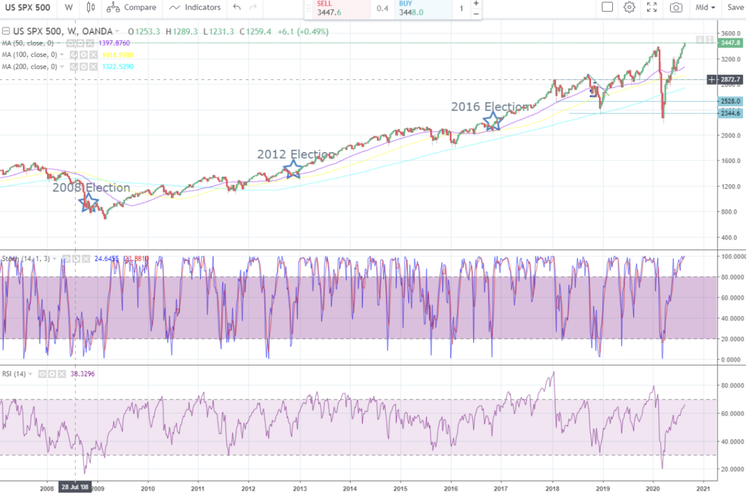
Disclaimer: This article is for general information purposes only and does not take into account your personal circumstances. This is not investment advice or an inducement to trade. The information shared is for illustrative purposes only and may not reflect current prices or offers from OANDA. Clients are solely responsible for determining whether trading or a particular transaction is suitable. We recommend you seek independent financial advice and ensure you fully understand the risks involved before trading. Leveraged trading is high risk and not suitable for all. Losses can exceed investments. Opinions are the authors; not necessarily that of OANDA Global Corporation or any of its affiliates, subsidiaries, officers or directors.
Edward Moya
Senior Market Analyst, The Americas, OANDA
Ed has over two decades of financial market experience and began his career on Wall Street as a forex broker. Ed has worked with some of the top research and news departments in New York and frequently appears on CNBC, Bloomberg TV, Yahoo Finance Live, Fox Business, AusbizTV, and Sky News.
Exclusive to OANDA
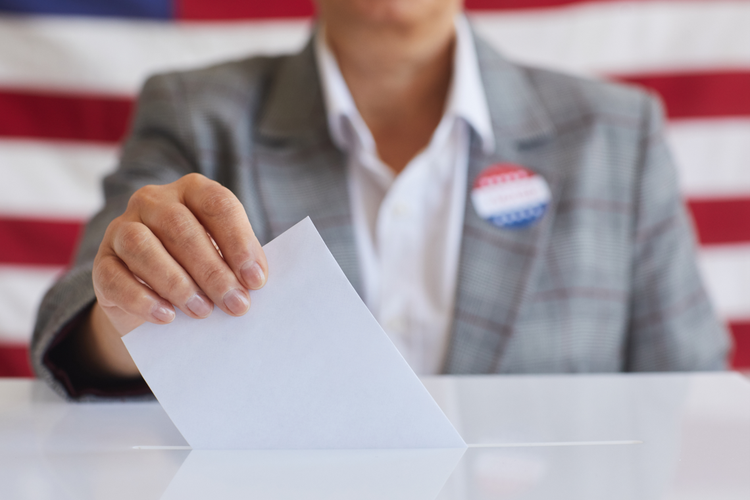
US election and the currency markets
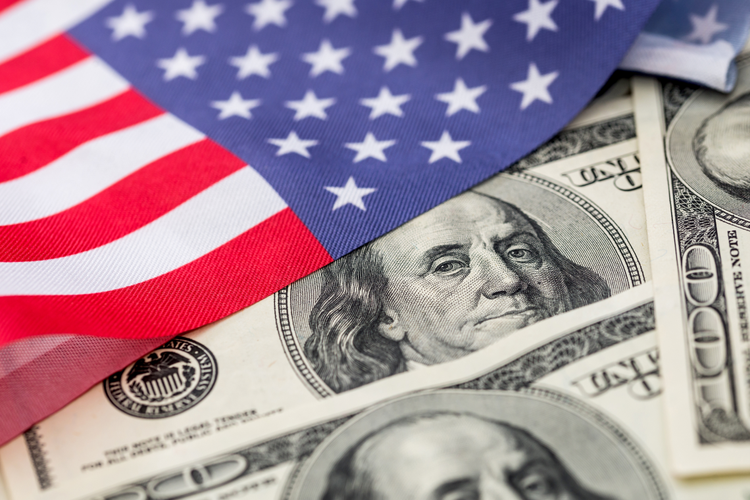
Commodities and the US election
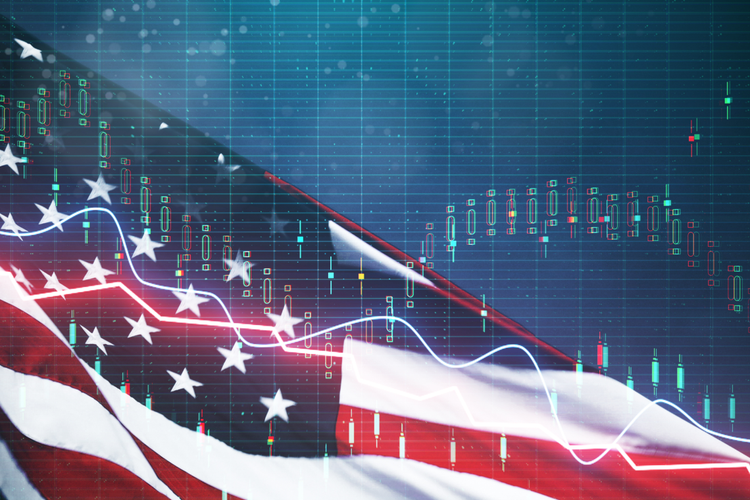
How to trade during the US election
